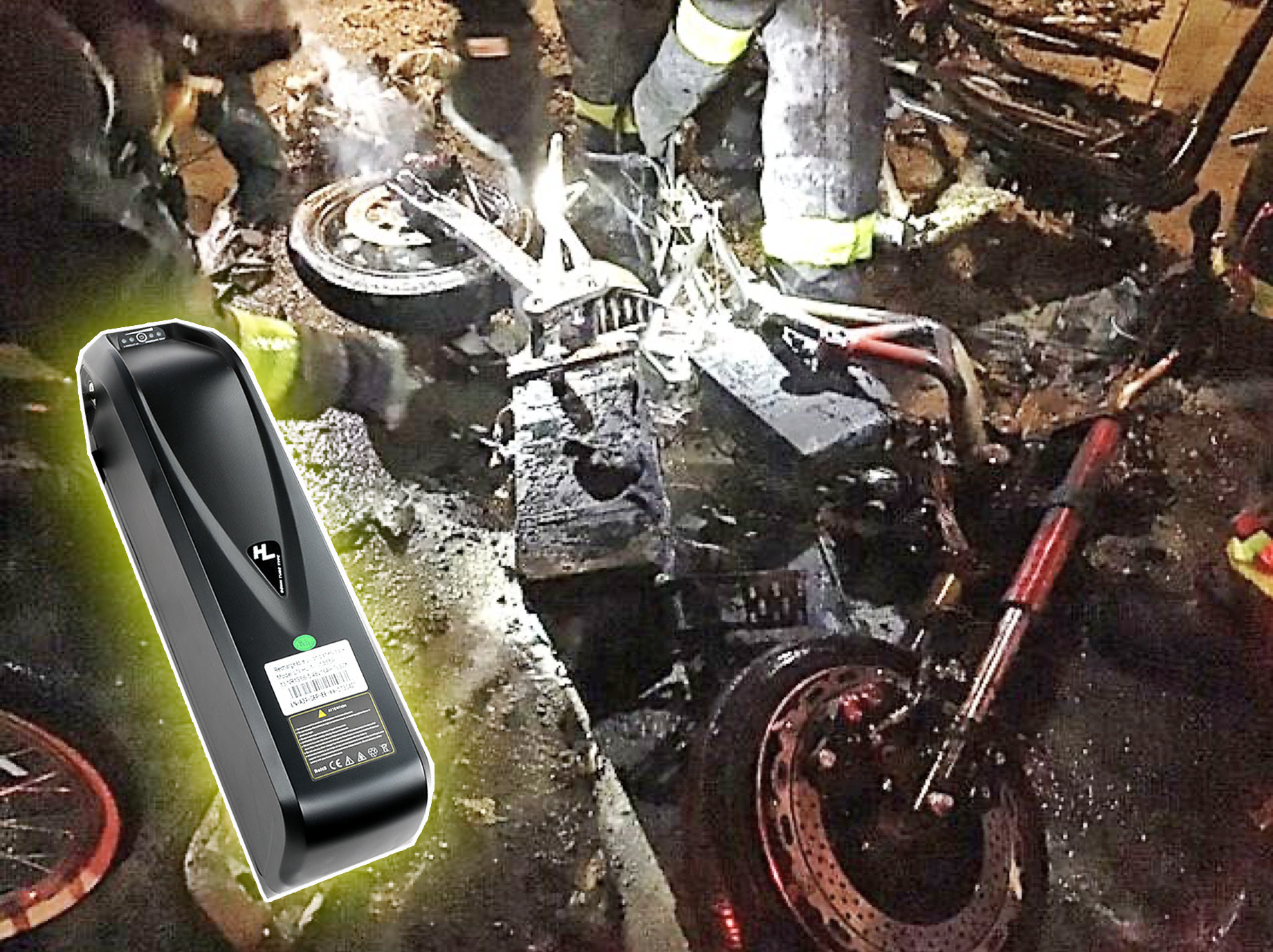Now here’s a bright idea.
As battery-sparked fires tear through homes and buildings, advocates and experts are calling for a trade-in program that would allow delivery workers to exchange faulty, damaged or second-hand batteries for safe, certified ones — a "battery buy-back" program modeled on successful efforts to reduce guns.
Such a program is just in the early dream stage right now, but if created, it would allow delivery workers who rely on e-bikes to get around to get approved batteries — such as those inspected by the internationally known Underwriters Laboratory — in exchange for existing power packs that may be improperly manufactured, second-hand, or have withered too much wear and tear.
“There needs to be some kind of a trade-in program,” said Melinda Hanson, the founder of urban mobility company Brightside, which is part of the Equitable Commute Project. "It is a public safety concern, and we want to get these batteries off the streets. And the way to do that is not to just ban them because that's going to result in additional enforcement against these folks who are already very unfairly treated. And having a carrot and a stick, I think, is essential to policy making.”
The idea comes amid growing fears over infernos that the FDNY attributes to the faulty batteries, which have killed one person so far this year, and injured dozens more. Last year, fires attributed to lithium-ion batteries killed six people and left many more without a home. But the FDNY says it has no way of determining how many of the fires associated with lithium-ion batteries are the result of e-bikes specifically and not other ubiquitous items or devices that rely on the same charging mechanism, like laptops, scooters, iPhones, or Citi Bikes.
Until there's a solution, agencies such as the FDNY have proposed such things as a ban on the sale of second-hand batteries, while many private buildings and universities have simply banned all electric bikes — moves that advocates say won't stop people from using e-bikes and only lead to more harassment.
Delivery workers — the majority of whom are low-income immigrant men — often do not purchase certified batteries because they can cost up to nearly $1,000. Workers take home just $7.09 per hour on average, excluding tips, so cheaper, second-hand batteries are often more attractive to them.
But one possible model for financing would mirror something like the Black Car Fund, which works by putting a surcharge on rides, which then go towards drivers in need of injury compensation. As part of the battery trade-in program, for example, delivery apps like Grubhub, Seamless, and Relay, would similarly agree to add a surcharge to deliveries, which would likely get passed onto the customer, to fund the batteries.
“This could be accomplished through rebate programs at the local, state, and federal levels, in addition to a trade-in program for non-compliant e-mobility devices and batteries supported by a fund similar to the Black Car Fund that would bring high-quality, compliant devices and batteries into reach for all,” said Divya Subramanian, an associate director at NYU’s Center for Sustainable Business, and who is also part of the Equitable Commute Project.
Council Member Gale Brewer (D-Manhattan) is among the legislators who have introduced bills to crackdown on faulty lithium-ion batteries, but said she would endorse such a program.
“I definitely think it's a good idea,” she said.
And Gustavo Ajche, the leader of Los Deliveristas Unidos, said one of the concerns is that delivery workers often don't know where to discard of old batteries, so a trade-in program — paired with robust education and awareness — would go a long way.
"That's gonna be part of the education, to tell people where they can take old batteries ... that it's not going to go to the wrong hands," he said.
And it could work like the NYPD’s so-called Cash for Guns program, where people receive $200 for guns — no questions asked. One recent event held by Brooklyn District Attorney Eric Gonzalez offered even more incentive as a private-public partnership with Junior’s Restaurant and T-Mobile, which provided free electronic devices as part of the program.
Obviously, it’s not exactly the same, but both batteries and guns pose public safety risks, said Hanson.
“It seems like because of the public safety concern that this has to be created, it's impossible to put a price on fire safety. So I think we just need to go ahead and do something,” she said.
And like the Brooklyn DA’s gun event, the battery trade-in program would only benefit from some type of private sponsorship — like the apps whose revenue depends on the deliveristas who schlep breakfast, lunch, and dinner to customers all over the city day and night.
“It would make a lot of sense to work with the apps. I think some of that outreach can be done through the apps. Some of the marketing of the program can definitely be done through the apps,” said Hanson.
A spokesperson for Grubhub declined to comment before seeing “more specifics on the proposal” but said it is “eager to work with policymakers on spreading public awareness about safe e-bike use, while preserving access for those who rely on them and tackling the clear need for better charging infrastructure."
Reps for Uber and Relay did not respond to requests for comment. And Doordash declined to comment.







